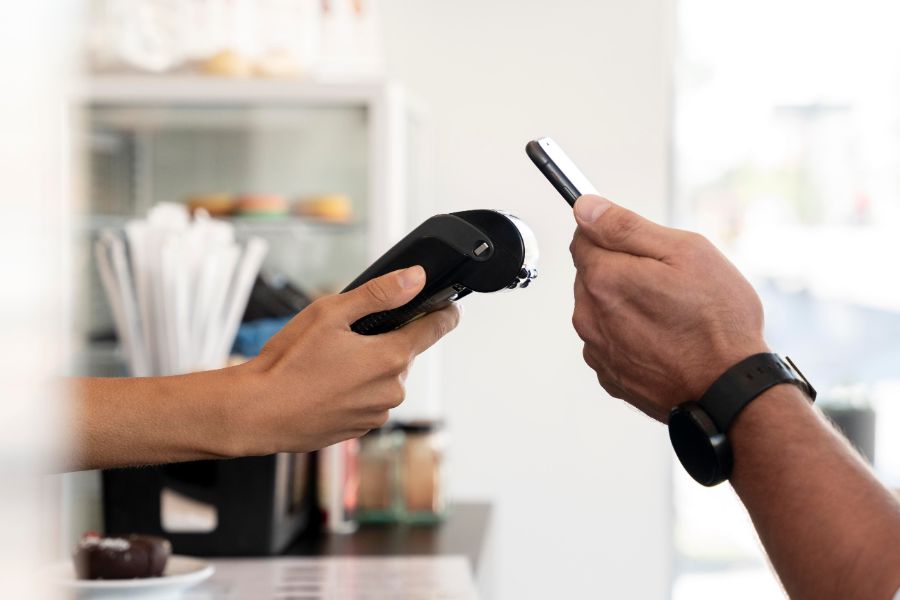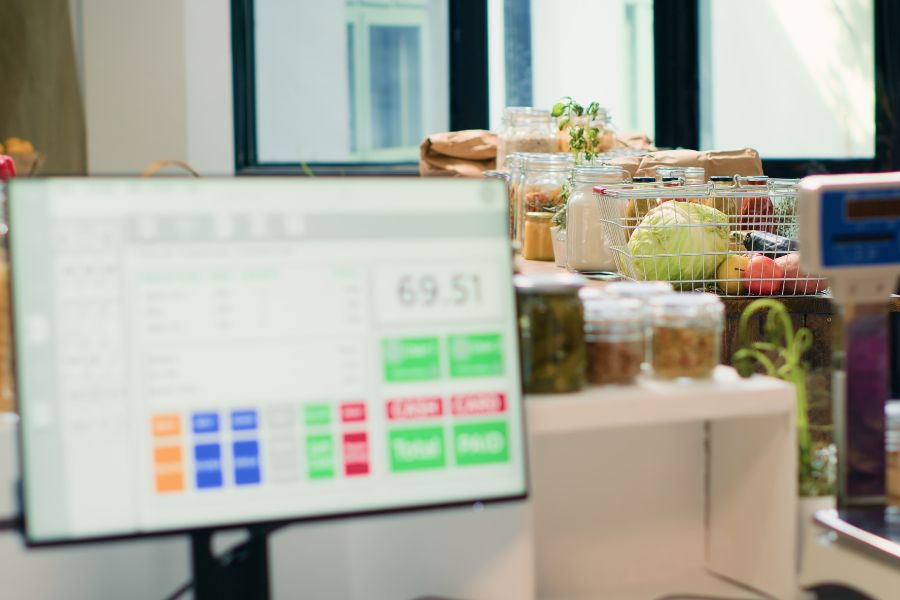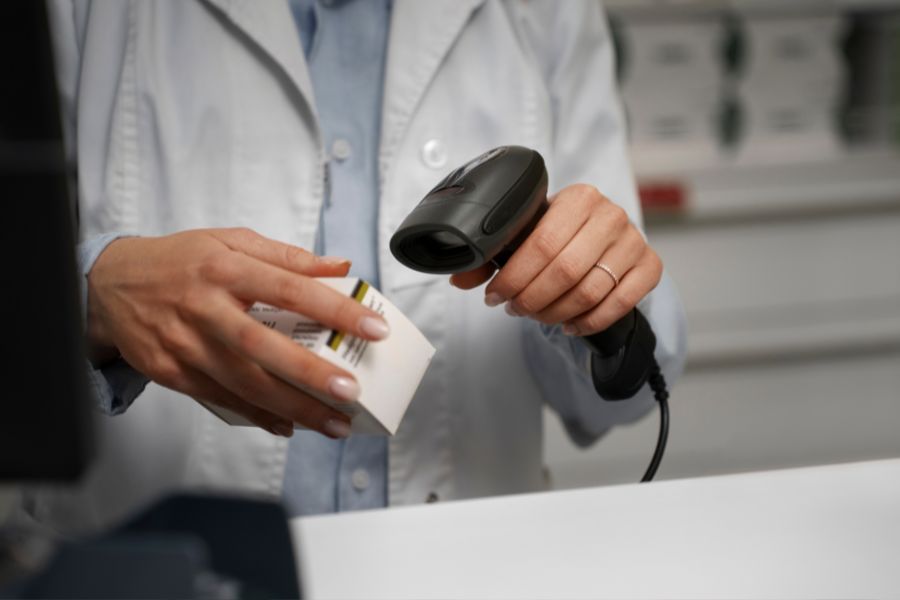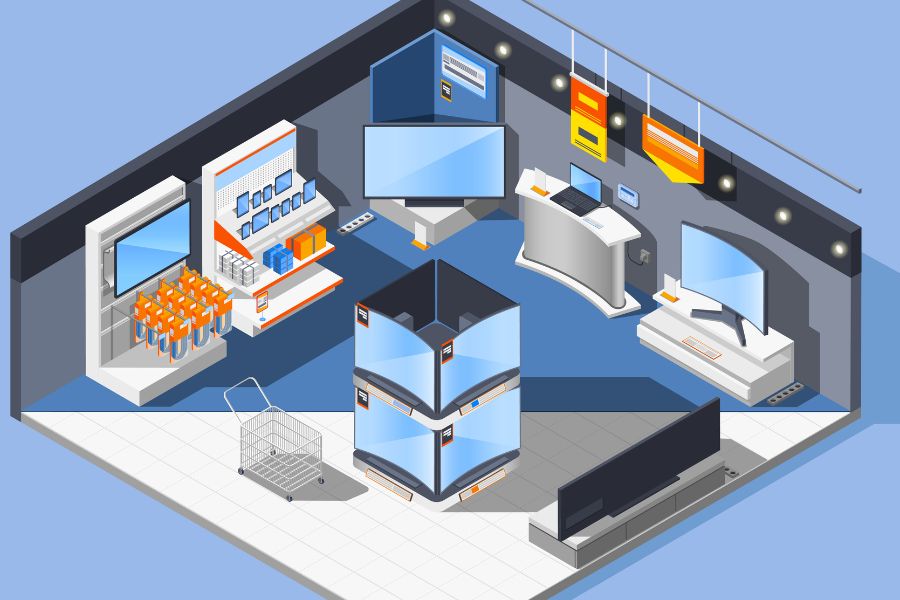In our increasingly cashless society, the POS swipe machine has become an integral component of the checkout process. Paired with advanced POS systems, swipe machines offer multifaceted support to businesses, enhancing both transactional efficiency and customer satisfaction. In this blog, we’ll dive into everything you need to know about a POS swipe machine—what it is, how it works, and the numerous benefits it brings to the retail environment.
What is a POS Swipe Machine?
A POS swipe machine is a device used to process payments by reading the information stored on the magnetic stripe or chip of a credit or debit card. Modern swipe machines are equipped to handle various payment methods, including traditional magnetic stripe transactions, EMV chip cards, and even contactless payments like NFC-enabled mobile wallets (e.g., Apple Pay and Google Pay). Integrated with comprehensive POS systems, these machines ensure that each transaction is processed quickly and securely.
How Does a Swipe Machine Work?
Using a POS swipe machine might seem straightforward—you simply swipe the card and within seconds, the transaction is processed. However, the underlying mechanism involves several critical steps.
- Card reading: When the card is swiped, the machine reads the essential data from the magnetic stripe or chip. This includes the card number, security code, and expiry date.
- Data transmission: The machine then encrypts and sends this data to a payment processor via a secure connection. The payment processor serves as an intermediary between the merchant and the card issuer.
- Authorization request: The payment processor forwards the transaction details to the card issuer for verification. The issuer checks the card’s validity, available funds, and whether it has been reported lost or stolen.
- Verification and response: The card issuer reviews the transaction and sends a response back to the payment processor. This response indicates whether the transaction is approved or declined, and it may include a reason for any decline, such as insufficient funds or a fraud alert.
- Transaction completion: The payment processor communicates the outcome to the swipe machine. If approved, the machine displays the approval and prints a receipt. The funds are then scheduled to be transferred from the issuer to the merchant’s account, typically within a few business days.
Benefits of a Swipe Machine
Understanding the functionality of a POS swipe machine highlights its numerous benefits for businesses. Below are some key advantages a POS swipe machine provides:
Fast and (almost) error-free checkout
POS swipe machines streamline the checkout process, making it quick and efficient. Transactions are processed in seconds, allowing businesses to handle more customers and reduce wait times, which enhances the overall customer experience. This efficiency not only boosts customer satisfaction but also increases the likelihood of repeat business and higher sales.
Additionally, the use of swipe machines minimizes human errors associated with handling cash, and instantly provides receipts, increasing convenience and security for both customers and businesses.

Multiple ways of paying
Swipe machines enable businesses to accept various forms of payment, including debit/credit cards, Chip & PIN, and digital wallets like Apple Pay and Google Pay. This versatility can accommodate more customers’ preferences, especially those who might not carry cash or have immediate internet access.
With trends showing a significant shift towards card payments, expected to account for 75% of all transactions by 2025, having a swipe machine positions a store to meet evolving consumer demands, maintaining competitiveness in the market.
Enhanced security over cash transactions
Cash transactions pose risks of theft and loss.
Switching to a POS swipe machine mitigates these risks as transactions are electronically processed and funds are directly transferred to the merchant’s account. While no system is entirely foolproof, electronic payments reduce the likelihood of theft and fraud through multiple layers of security such as PIN, OTP, or biometric verification.
Supports an omnichannel shopping experience
Swipe machines are pivotal in offering a seamless omnichannel shopping experience.
For instance, if a customer chooses to buy online and pick up in-store, a swipe machine can process their payment and update the order status in real-time across the POS system and eCommerce platform. This integration ensures a consistent, efficient, and satisfactory shopping journey.
Detailed reporting and analytics
POS swipe machines are not just transactional tools; they also play a crucial role in gathering data. Each transaction processed collects valuable information that feeds into an integrated POS system. This data can be used to generate detailed reports and analytics, providing insights into sales trends, peak transaction times, and customer spending habits.
Such analytics are indispensable for making informed business decisions, optimizing inventory management, and tailoring marketing strategies to better meet customer needs and preferences. With these insights, businesses can enhance operational efficiency and strategically plan for growth.
To further enhance your retail operations, consider integrating ConnectPOS with your operation system. ConnectPOS is designed to work seamlessly with swipe machines, offering advanced features like real-time data synchronization, comprehensive inventory management, and multi-platform compatibility. This integration not only simplifies transactions but also provides valuable insights to help you grow your business.
Considerations When Choosing a POS Swipe Machine
It is crucial to select the right POS swipe machine for your business operations. We have listed out some aspects for consideration regarding your future POS swipe machine.
- Compatibility with existing systems
Ensure the swipe machine is compatible with your current POS system and other technology. Compatibility reduces integration issues and can leverage your existing setup without requiring significant changes or additional investments.
- Security feature
Security is paramount in any payment system. Look for a swipe machine that offers advanced security features such as end-to-end encryption, compliance with PCI DSS standards, and support for secure payment methods like EMV chips, NFC for contactless payments, and biometric verification.
- Costs and fees
Evaluate the cost of the machine itself and any associated fees, including transaction fees, monthly service fees, and setup costs. Opt for a transparent pricing model to avoid unexpected charges and ensure it fits within your budget while still meeting your needs.
- Ease of use
The swipe machine should be user-friendly, both for your staff and your customers. Simple interfaces, quick transaction processing, and reliability in various operational conditions are key factors that contribute to a smooth checkout process.
- Customer support and service
Good customer support can be invaluable, especially when dealing with financial transactions. Choose a provider that offers robust support services, including troubleshooting, repairs, and quick replacement of faulty machines to minimize downtime.
Final thoughts
As the retail landscape continues to evolve, POS swipe machines remain a crucial element in delivering efficient, secure, and versatile payment solutions. Their ability to integrate seamlessly with advanced POS systems not only streamlines operations but also enhances the overall customer experience. Whether you’re running a small boutique or managing a large retail chain, investing in a reliable swipe machine is key to staying competitive in today’s cashless economy.
If you need assistance integrating or upgrading your POS swipe machine system, feel free to contact us for expert guidance and support.
ConnectPOS is a all-in-one point of sale solution tailored to meet your eCommerce POS needs, streamline business operations, boost sales, and enhance customer experience in diverse industries. We offer custom POS with features, pricing, and plans to suit your unique business requirements.




